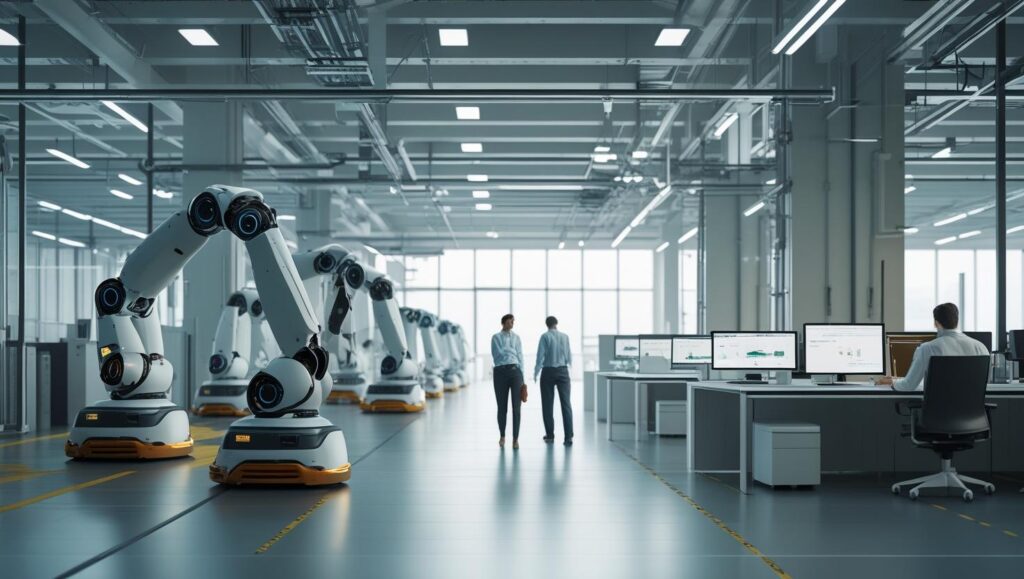AI Automation: What Jobs Are Most Affected?
As artificial intelligence continues to evolve, one question echoes louder than the rest: which jobs are most affected by AI automation? Whether it’s self-checkout kiosks or chatbots handling customer service, automation is no longer a distant concept—it’s happening now. For workers and employers alike, understanding the impact of AI on the job market is essential for future-proofing careers and strategies. Let’s take a closer look at the roles most susceptible to AI disruption in 2025 and beyond.
Understanding AI Automation and Its Rise
AI automation refers to the use of artificial intelligence technologies, such as machine learning, natural language processing, and robotics, to perform tasks that traditionally require human intelligence. These systems can learn from data, make decisions, and operate without constant human intervention.
Why AI Is Gaining Traction in the Workforce
- Cost-efficiency and 24/7 availability
- Increased accuracy and speed
- Elimination of repetitive tasks
- Ability to analyze large datasets quickly
Top 10 Jobs Most Affected by AI Automation
Below are the sectors and roles that face the greatest impact from AI integration in the workplace.
1. Data Entry Clerks
One of the earliest casualties of AI, data entry is highly repetitive and rule-based—making it an ideal candidate for automation. Optical character recognition (OCR) and AI-powered tools can extract and input data far more efficiently than humans.
2. Telemarketers
AI-driven voice systems and chatbots have significantly reduced the need for human telemarketers. These bots are capable of making outbound calls, engaging in basic conversation, and even learning from interactions.
3. Manufacturing and Assembly Line Workers
Industrial robots and automated machinery are revolutionizing production lines. From car manufacturing to electronics, AI-enabled robotics improve precision, reduce errors, and work continuously without breaks.
Common AI Applications in Manufacturing:
- Automated quality checks
- Predictive maintenance
- Robot arms for assembly and packaging
4. Customer Service Representatives
Chatbots and virtual assistants powered by natural language processing can now handle common customer queries. While human intervention is still necessary for complex issues, AI handles the bulk of support tickets and FAQs.
5. Retail Cashiers
Self-checkout kiosks and AI-powered POS systems are replacing traditional cashier roles. These systems improve checkout speed and reduce human error, particularly in supermarkets and large retail chains.
6. Delivery and Courier Services
From autonomous delivery robots to drone shipments, AI is transforming last-mile delivery. Major companies are investing heavily in logistics automation to improve speed and reduce human labor costs.
7. Paralegals and Legal Assistants
AI software is now capable of scanning legal documents, identifying clauses, and conducting preliminary research. While attorneys remain irreplaceable, many administrative legal roles are being supplemented—or replaced—by AI tools.
8. Accountants and Bookkeepers
AI accounting platforms can process invoices, categorize expenses, and generate financial reports. While human accountants are still essential for strategic planning and complex analysis, many routine tasks are now automated.
9. Journalists and Content Creators
AI tools like GPT and content automation platforms can now write news articles, product descriptions, and marketing copy. Although creative storytelling remains a human strength, factual and formulaic writing is increasingly AI-generated.
Tasks AI Can Handle:
- News summarization
- SEO meta descriptions
- Product descriptions
10. Financial Analysts
With access to vast datasets, AI can identify patterns, generate forecasts, and make recommendations. Robo-advisors are now common in personal finance, handling investment portfolios without human input.
Industries Less Affected by AI (For Now)
Despite the sweeping changes, some industries remain relatively secure due to their reliance on human judgment, empathy, or manual dexterity.
Examples of AI-resistant roles:
- Healthcare professionals (nurses, doctors)
- Skilled trades (electricians, plumbers)
- Creative arts (painters, musicians)
- Social workers and counselors
These roles often require complex emotional intelligence, nuanced decision-making, or tasks that are physically hard to replicate via machines.
Preparing for the Future of Work
While AI automation presents undeniable challenges, it also opens doors to new roles—particularly in AI development, maintenance, and ethics. Upskilling, continuous learning, and adaptability are the keys to thriving in the AI era.
AI isn’t here to replace everyone—it’s here to redefine how we work. Understanding where automation is headed helps us stay ahead of the curve. Whether you’re a student choosing a career path or a professional looking to reskill, acknowledging the impact of AI automation can guide smarter decisions for a secure future.



